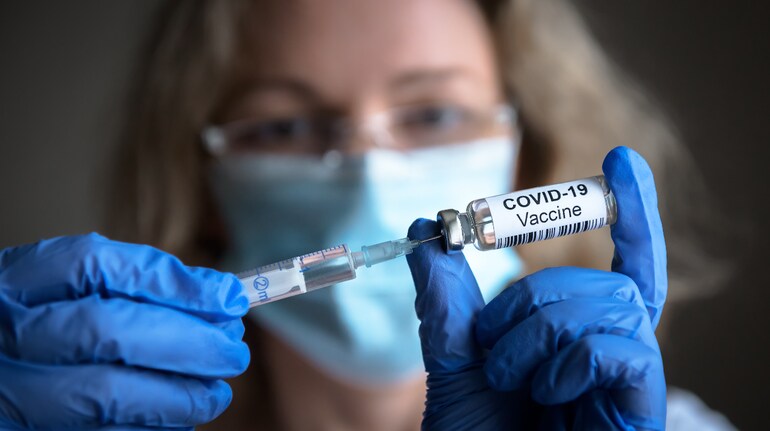
(Representative image)
With neighbouring China reporting a massive surge in COVID-19 cases and India’s COVID-19 booster coverage standing at just 28 percent, the government has decided to expand the precautionary dose coverage in the country.
A high-level meeting, chaired by Union health minister Mansukh Mandaviya, was held on December 21 to review the status and preparedness of COVID-19 in India.
The Centre, however, is in no mood to offer booster doses free of cost to the 18-59-year age group even though it may decide to procure nasal vaccine by Bharat Biotech and Corbevax by Biological E, top sources in the Union health ministry told Moneycontrol.
Under the current vaccination policy, those who have taken two doses of Covaxin or Covishield have the choice of receiving Corbevax as a precautionary dose. In days to come, nasal vaccine, too, may be permitted for them.
Those above 60 years of age can receive booster shots in government hospitals free of cost. Those in the 18-59-year age group, however, can avail the dose in private facilities at pre-decided rates.
As part of the Azadi Ka Amrit Mahotsav celebrations, the government made COVID-19 booster shots free for all adults between July 15 and September 30, 2022 but this initiative was discontinued in October.
So far, over 220 crore COVID-19 vaccine shots have been administered in India. Of these, a little more than 22 crores are booster doses.
“The emphasis now is going to be on making a fresh appeal to the eligible population group to receive the vaccination. In days to come, we may decide the quantity and types of vaccine to be procured for the purpose,” said a senior official in the ministry. This official attended the December 21 meeting.
As scientific evidence has shown that vaccines based on protein subunits, such as Corbevax, work better as boosters, it may be more prudent to urge all susceptible population groups, especially the elderly, to receive them.
Why the concern
Experts, like Dr Shikha Gulia, who is associated with Paras Hospitals in Gurugram, said the sudden rise of COVID-19 cases in China, Brazil, the US, Japan and other countries has raised concerns across the world to maintain safety precautions and maximum protective measures.
China is making headlines due to a fresh eruption of cases. Reports suggest the country could witness approximately 1.5 million deaths based on recent counts, she said.
Scientist Vinod Scaria, in his Twitter post, underlined that a massive surge in infections also triggers the possibility of a worrisome mutation, which may lead to fresh waves of infections in several countries—including those which have been battered by this pandemic before.
As on December 22, though, the number of active infections in India stood at 3,402.
Mix and match new hope?
Compared to the influenza viruses, there is a lower mutation rate of SARS-COV2, said Dr Girdhara Babu, an epidemiologist with the Public Health Foundation of India, adding that this is an advantage as it will facilitate the development and use of vaccines with a longer duration of protection than influenza viruses.
Ensuring faster booster coverage now among all adults, especially among the vulnerable, can prevent death and hospitalisation even if newer strains are developed as a consequence of the ongoing circulation, Babu said.
Also read I China stares at another COVID-19 crisis; can India stay immune?
“We should remind ourselves that the more the virus circulates, the more opportunities it has to mutate, ” he stressed.
Virologist Dr Shahid Jameel, a research fellow with Green Templeton College, Oxford University, rather bluntly said India is foolishly sticking to homologous boosters and even for that the uptake has been very low.
“Increase boosters, use protein vaccines—that’s what we should do,” he said.

